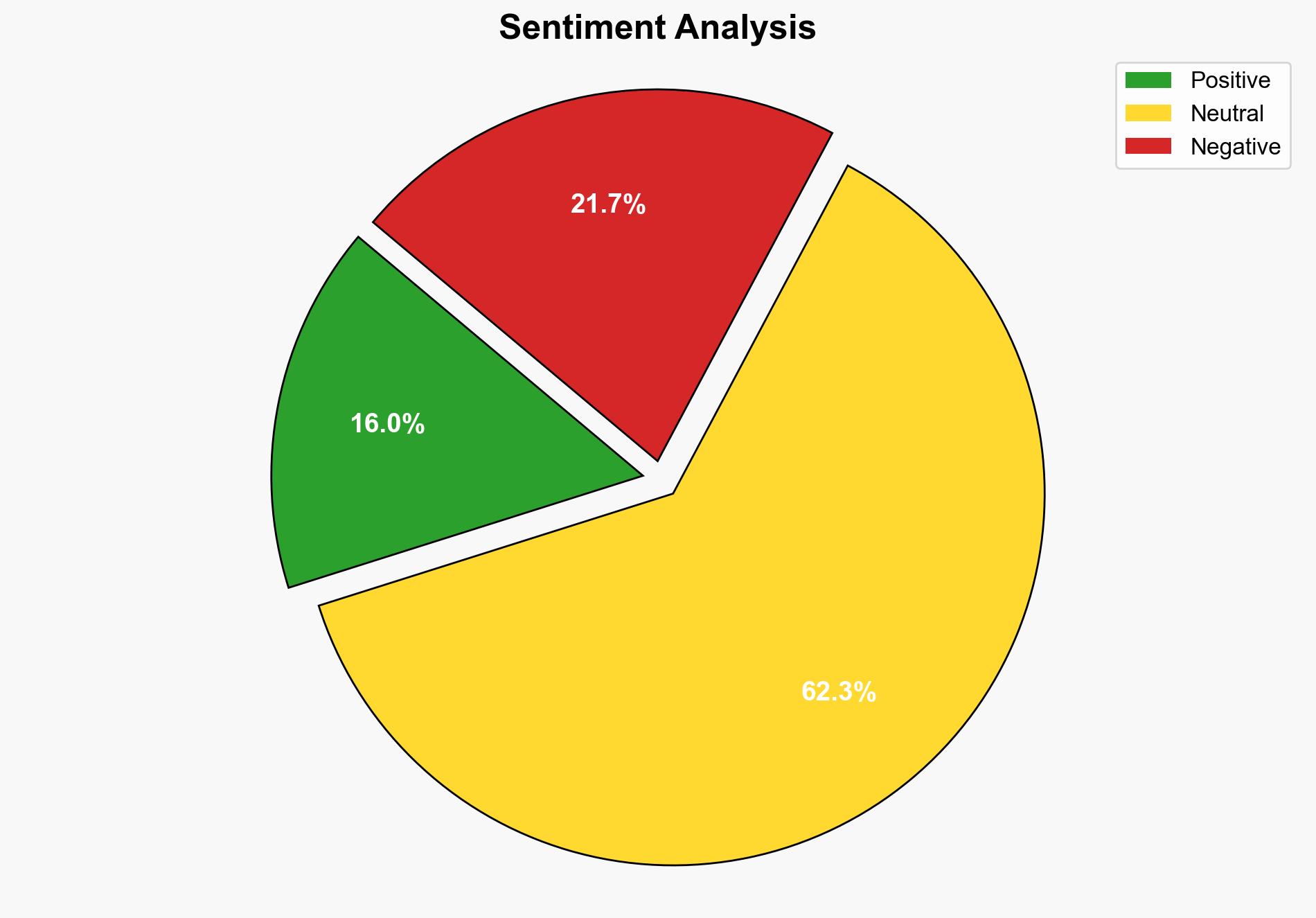Araghchi slams European countries for ignoring US Israeli aggression against Iran – Globalsecurity.org
Published on: 2025-09-12
Intelligence Report: Araghchi slams European countries for ignoring US Israeli aggression against Iran – Globalsecurity.org
1. BLUF (Bottom Line Up Front)
The most supported hypothesis is that Iran is strategically leveraging international forums to garner support against perceived aggression by the US and Israel, while simultaneously attempting to maintain its nuclear program under the guise of peaceful intent. Confidence in this assessment is moderate due to the complexity of international relations and potential biases in information sources. Recommended action includes diplomatic engagement with European nations to clarify their positions and encourage dialogue to de-escalate tensions.
2. Competing Hypotheses
Hypothesis 1: Iran’s public denunciation of European countries is a strategic move to pressure them into taking a more active role against US and Israeli actions, thereby isolating these countries diplomatically and gaining leverage in nuclear negotiations.
Hypothesis 2: Iran’s statements are primarily for domestic consumption, aimed at reinforcing national unity and justifying its nuclear activities in the face of external threats, rather than genuinely seeking European intervention.
Using ACH 2.0, Hypothesis 1 is better supported due to Iran’s active engagement with international bodies and its emphasis on diplomatic progress, suggesting a broader strategy beyond domestic rhetoric.
3. Key Assumptions and Red Flags
Assumptions include the belief that European countries can be swayed by diplomatic pressure and that they have the capacity to influence US and Israeli policies. Red flags include potential bias in Iranian media and the lack of direct responses from European nations, which could indicate either strategic silence or lack of alignment with Iran’s narrative. The absence of detailed European reactions is a significant blind spot.
4. Implications and Strategic Risks
The ongoing tensions could lead to further destabilization in the region, impacting global oil markets and increasing the risk of military confrontations. Cybersecurity threats may also rise as state and non-state actors exploit the geopolitical climate. The psychological impact on regional populations could exacerbate humanitarian crises, particularly in areas like Gaza.
5. Recommendations and Outlook
- Encourage multilateral dialogue involving the EU, US, and Iran to address security concerns and nuclear program transparency.
- Monitor regional military activities to anticipate potential escalations.
- Scenario Projections:
- Best Case: Successful diplomatic engagement reduces tensions and leads to renewed JCPOA negotiations.
- Worst Case: Military confrontation escalates, involving multiple regional actors.
- Most Likely: Continued diplomatic stalemate with intermittent escalations and de-escalations.
6. Key Individuals and Entities
– Seyyed Abbas Araghchi
– Antonio Guterres
– Rafael Grossi
7. Thematic Tags
national security threats, cybersecurity, counter-terrorism, regional focus





